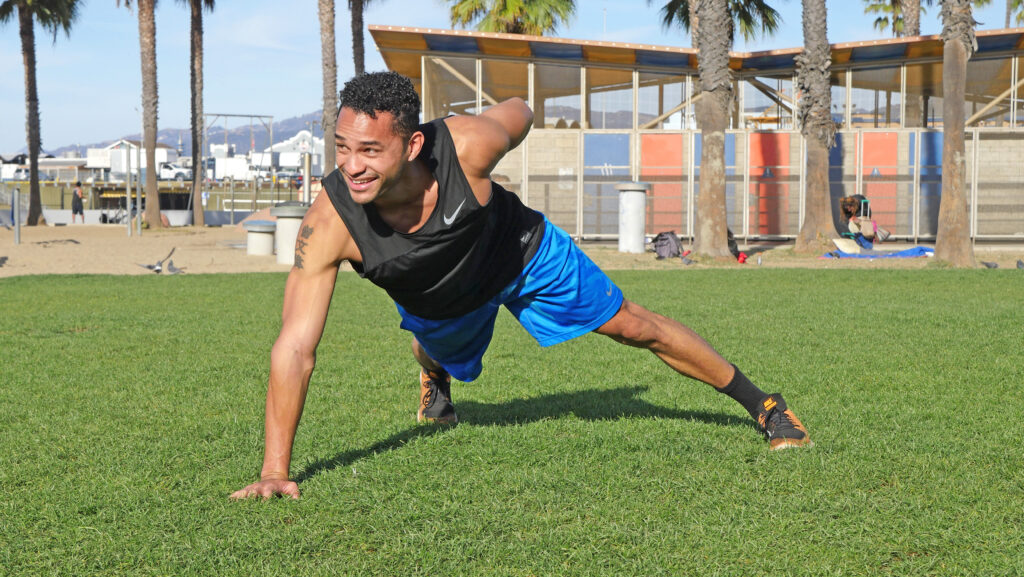
When we watch elite athletes perform, it’s easy to focus on their amazing physical skills—speed, power, agility. But what often goes unnoticed is the incredible mental fortitude these athletes possess. Their minds are finely tuned machines that help them achieve peak performance, push through pain, and stay focused under pressure.
But here’s the good news: You don’t need to be an Olympian to benefit from these mental skills. Whether you’re pushing through a tough workout, striving for personal goals, or simply trying to navigate the challenges of daily life, the mental strategies used by elite athletes can give you the edge you need.
In this article, we’ll dive into five key mental skills that anyone can adopt: clear goal setting, self-talk, intentional breathing, letting go of mistakes, and mental imagery.
Let’s break them down so you can start applying these powerful techniques today.
Clear Goal Setting
Imagine trying to run a marathon without knowing the distance. You’d have no idea how to pace yourself, when to push harder, or even when you’re getting close to the finish line. Setting clear goals gives you direction, motivation, and a sense of purpose—whether you’re training for a race, aiming to improve your fitness, or working towards a personal milestone.
Elite athletes are masters of goal setting. They set specific, measurable, and time-bound goals to track their progress. For example, rather than just aiming to “get faster,” a sprinter might set a goal to shave 0.2 seconds off their 100m time within three months. This level of specificity helps them focus their efforts and measure success.
Try it: Start by setting SMART goals—Specific, Measurable, Achievable, Relevant, and Time-bound. Instead of saying, “I want to get fitter,” try, “I want to be able to do 20 push-ups in a row within the next month.” This way, you can monitor your progress and stay motivated as you inch closer to your goal.
Self-Talk
We all have an inner voice that guides us throughout the day, but did you know that this self-talk can directly impact your performance? For athletes, positive self-talk is a secret weapon. It can boost confidence, enhance motivation, and help them push through tough moments. On the flip side, negative self-talk can sap energy, create self-doubt, and hinder progress (if you want a really cool book that talks about this, check out the Inner Game of Tennis—the lessons apply to far more than just tennis!).
Try it: Start by becoming aware of your self-talk. When you catch yourself thinking negatively—“I can’t do this,” “I’m not strong enough”—pause and reframe those thoughts. Replace them with positive affirmations like, “I’m strong enough to handle this,” or “I’ve overcome challenges before, and I can do it again.” Over time, this shift can transform your mindset and improve your performance.
Intentional Breathing
It sounds simple, but mastering your breath can be a game-changer. Controlled breathing is crucial for managing stress, staying focused, and maintaining composure—especially when the pressure is on.
Elite athletes use various breathing techniques to keep their nerves in check and stay present. Diaphragmatic breathing, for instance, helps to lower the heart rate and increase oxygen flow to the muscles, promoting relaxation. Box breathing, another popular technique, involves inhaling for four counts, holding the breath for four counts, exhaling for four counts, and then holding again for four counts.
Try it: Next time you’re feeling stressed or overwhelmed, take a moment to practice diaphragmatic breathing. Place one hand on your chest and the other on your abdomen. Breathe in deeply through your nose, allowing your abdomen to rise, then exhale slowly through your mouth. Practicing this for a few minutes can help you regain focus and control.
How to Let Go of Mistakes
Everyone makes mistakes—elite athletes included. The difference is how they respond to those mistakes. Dwelling on errors can lead to frustration and self-doubt, which can spiral into poor performance. That’s why one of the most important mental skills an athlete can develop is the ability to let go and move on quickly.
Resilience is key here. Elite athletes learn from their mistakes without letting them define their future performances. They stay present, focusing on what they can control in the moment rather than what went wrong in the past.
Try it: Practice mindfulness to stay grounded in the present. If you make a mistake, acknowledge it, learn from it, and then let it go. Focus on the next opportunity rather than dwelling on the past. This shift in mindset can help you stay positive and forward-focused.
Mental Imagery
Mental imagery, or visualization, is a powerful tool used by elite athletes to enhance their performance. By vividly imagining themselves succeeding—whether it’s nailing a perfect dive, making a crucial shot, or crossing the finish line—they effectively train their minds and bodies for success.
Visualization helps to reinforce neural pathways, making the actual performance feel familiar and achievable. This technique is not just about seeing yourself succeed but also about feeling the emotions, hearing the sounds, and experiencing the sensations of that success.
Try it: Start by setting aside a few minutes each day to practice mental imagery. Close your eyes and visualize yourself achieving your goal in as much detail as possible. Imagine the sights, sounds, and feelings associated with your success. Over time, this practice can increase your confidence and readiness to tackle challenges.
Bringing Elite Athlete Mental Skills into Your Everyday Life
These five mental skills are the hidden strengths behind elite athletic success. But you don’t have to be a pro athlete to benefit from them. By incorporating these strategies into your daily routine, you can improve not only your fitness performance but also your ability to handle life’s challenges with grace and resilience.
Your mind is just as powerful as your body—if not more so. Start training it like an elite athlete today.


